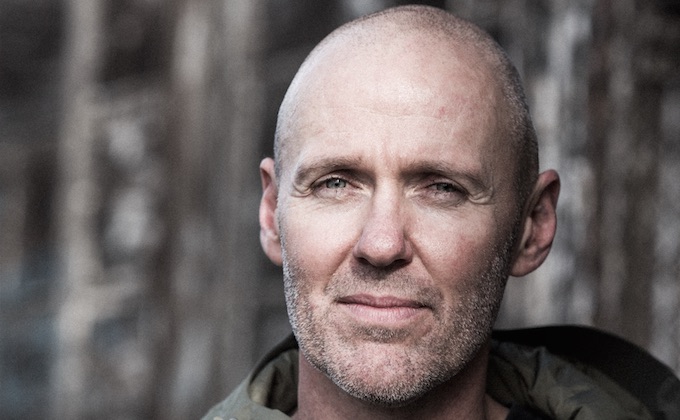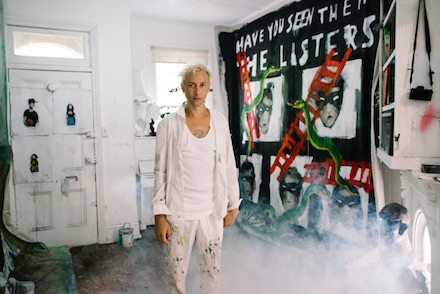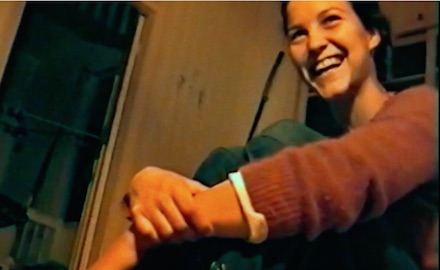LIVE: THE LISA CHARLOTTE FRIEDRICH INTERVIEW
 Tuesday, February 23, 2021 at 9:23AM
Tuesday, February 23, 2021 at 9:23AM
When Lisa Charlotte Friedrich began shooting her debut feature, it was speculative fiction. LIVE tells the story of a near-future where society, at the mercy of terrorist attacks, exists in perpetual lockdown; rebels, led by Claire (Karoline Reinke), plan a cultural event that will begin social reunification. Then, 2020 hit, and suddenly LIVE seemed not only the bracing science-fiction drama that Friedrich envisioned but also an alternate reality concept, capturing a longing for interaction that had become commonplace. For a first-time feature director, Friedrich found herself helming a work with relevance and resonance like few ever had.

Ahead of the film's Australian Premiere at the Sydney Science Fiction Film Festival's German Sci-Fi Showcase on Saturday February 27, Lisa Charlotte Friedrich generously spoke to SCREEN-SPACE about the science-fiction that inspires her, the genre cinema of her homeland and what she has taken away from directing her first feature... (Photo: ©Benno Kraehahn 2020)
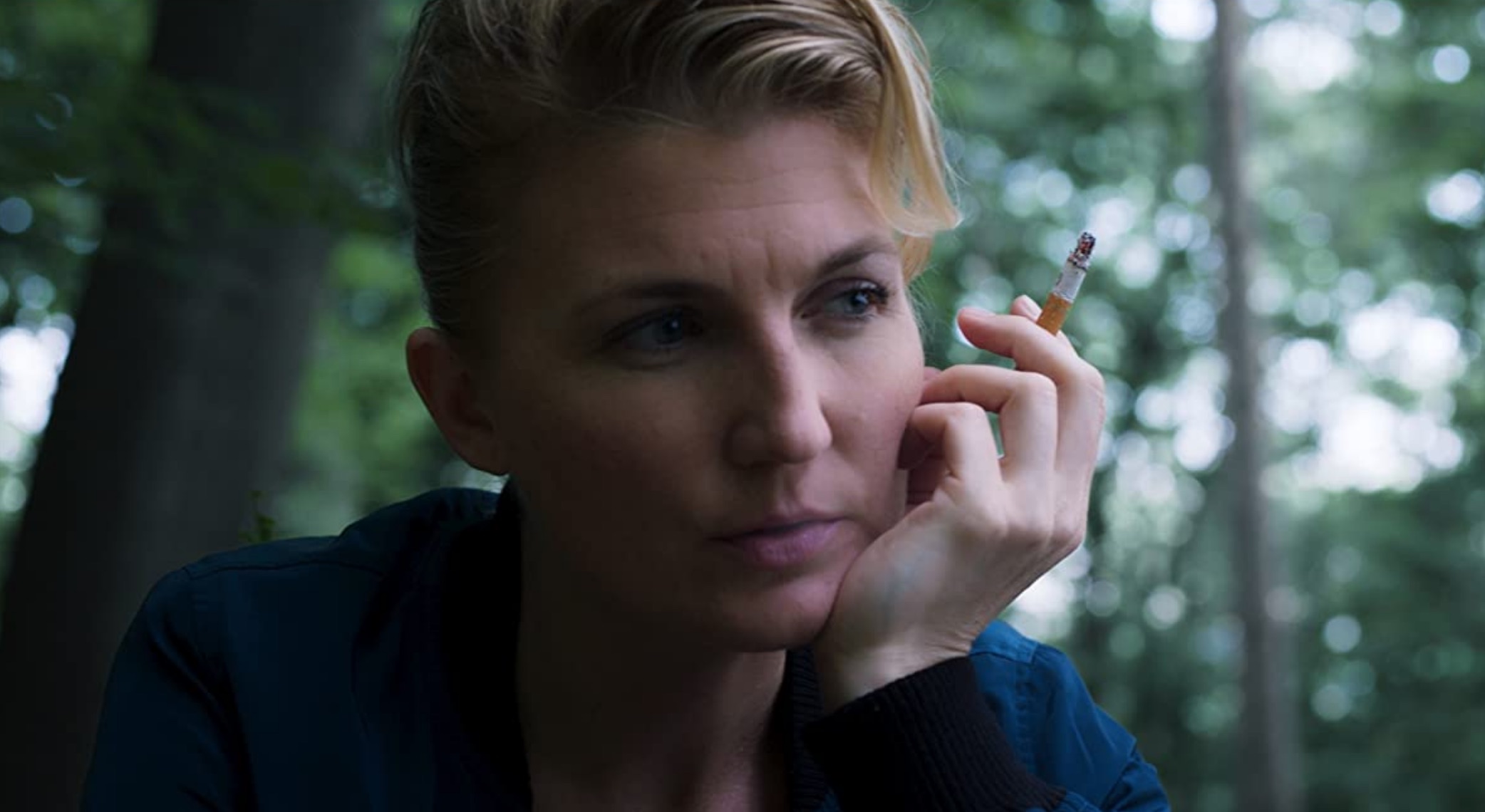 SCREEN-SPACE: What have been the science-fiction works – books, films, art of any kind – that have inspired your work and forged your love for the genre?
SCREEN-SPACE: What have been the science-fiction works – books, films, art of any kind – that have inspired your work and forged your love for the genre?
FRIEDRICH: I have always devoured masterpieces like Margaret Atwood’s The Handmaid’s Tale - both the book and the first season of the series - Ridley Scott’s Blade Runner, Aldous Huxley’s Brave New World or Spike Jonze’s Her. I love the infinite aesthetic and narrative freedoms that come for the creator of these sci-fi worlds together with constraints of the inner logic, the restrictions to maintain credibility for the viewer or reader. What I love especially about Atwood’s work is her concept of speculative fiction; the worlds she creates that are just a different version of our present. (Pictured, above; Karoline Reinke, as Claire, in LIVE)
SCREEN-SPACE: How did the original concept for your film take shape? What aspects of your film’s narrative and your protagonist’s journey were most important to you?
FRIEDRICH: At the beginning there was the story of Cain and Abel I wanted to make a film about. While developing my script I found out that I wanted to keep the sibling’s conflict under the blankets as long as possible. I was looking for a translation of the personal conflict into a social setting, a conflict affecting a whole society. This is how I ended up developing a world where terrorism has skyrocketed, so all public live has been shut down. I wanted my protagonist to be vulnerable, strong, flawed and accessible at the same time. She needed to face the conflict as old as mankind no matter what time she lived in.
LIVE Official Trailer from |li|ke| Filme on Vimeo.
SCREEN-SPACE: Does the ‘science-fiction’ genre have deep roots in the art and cultural history of your homeland? Were the resources, facilities and talent pool required to bring your film to life easily sourced?
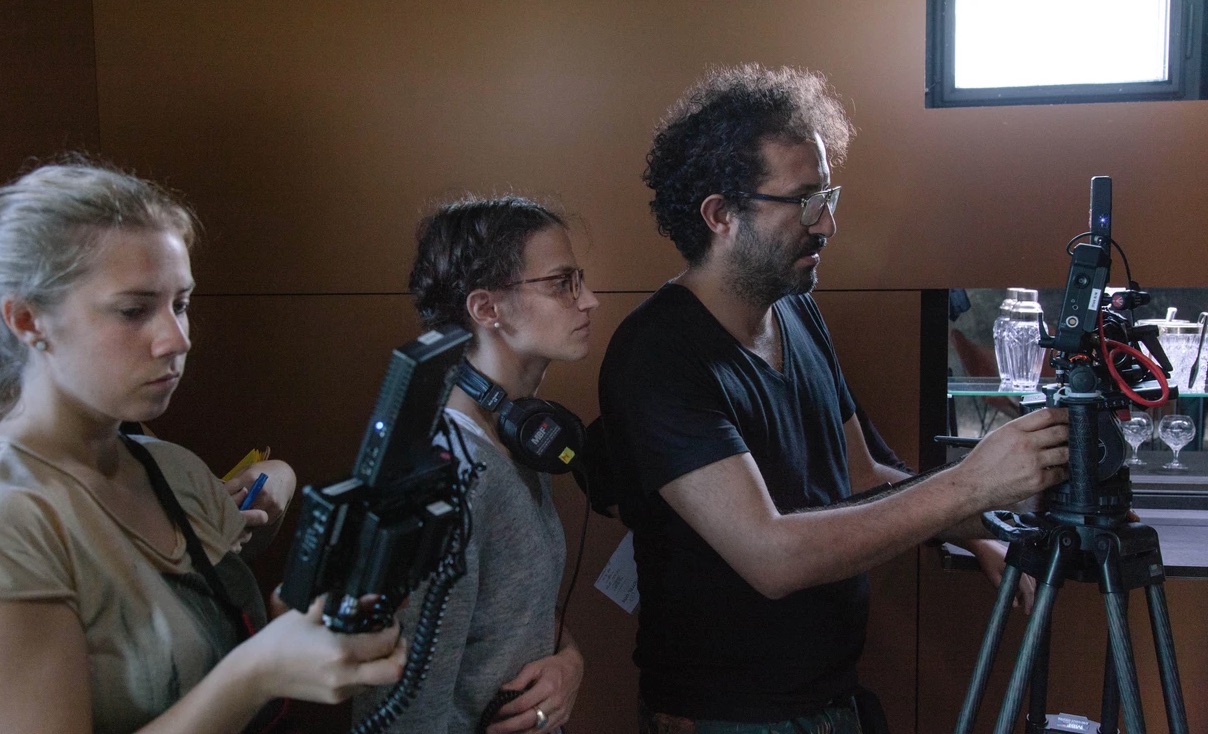 FRIEDRICH: In Germany, science-fiction is more an exception than the common genre. At the festival where LIVE had its premier, the Filmfestival Max Ophüls Preis is the most important newcomer festival in Germany, we were the only sci-fi film in the competition; quite a few people approached us after the film telling us they liked it, especially for the fact that sci-fi is such a rarity in German films. Still, from time to time there are exceptions like Welt am Draht (World on a Wire, 1973) by Rainer Werner Fassbinder. Financing the film, we felt that it was neither a bonus nor a negative aspect that we were doing sci-fi. As to our team, we always had the impression that they liked the fact that we were doing something a bit more unusual, that the aesthetic departments had more freedom, that there were some challenges that needed extra attention but enabled us to create something „out of the box". (Pictured, above; Friedrich on-set, centre, shooting LIVE with Laura Krestan, left, and Ivàn Robles Mendoza)
FRIEDRICH: In Germany, science-fiction is more an exception than the common genre. At the festival where LIVE had its premier, the Filmfestival Max Ophüls Preis is the most important newcomer festival in Germany, we were the only sci-fi film in the competition; quite a few people approached us after the film telling us they liked it, especially for the fact that sci-fi is such a rarity in German films. Still, from time to time there are exceptions like Welt am Draht (World on a Wire, 1973) by Rainer Werner Fassbinder. Financing the film, we felt that it was neither a bonus nor a negative aspect that we were doing sci-fi. As to our team, we always had the impression that they liked the fact that we were doing something a bit more unusual, that the aesthetic departments had more freedom, that there were some challenges that needed extra attention but enabled us to create something „out of the box". (Pictured, above; Friedrich on-set, centre, shooting LIVE with Laura Krestan, left, and Ivàn Robles Mendoza)
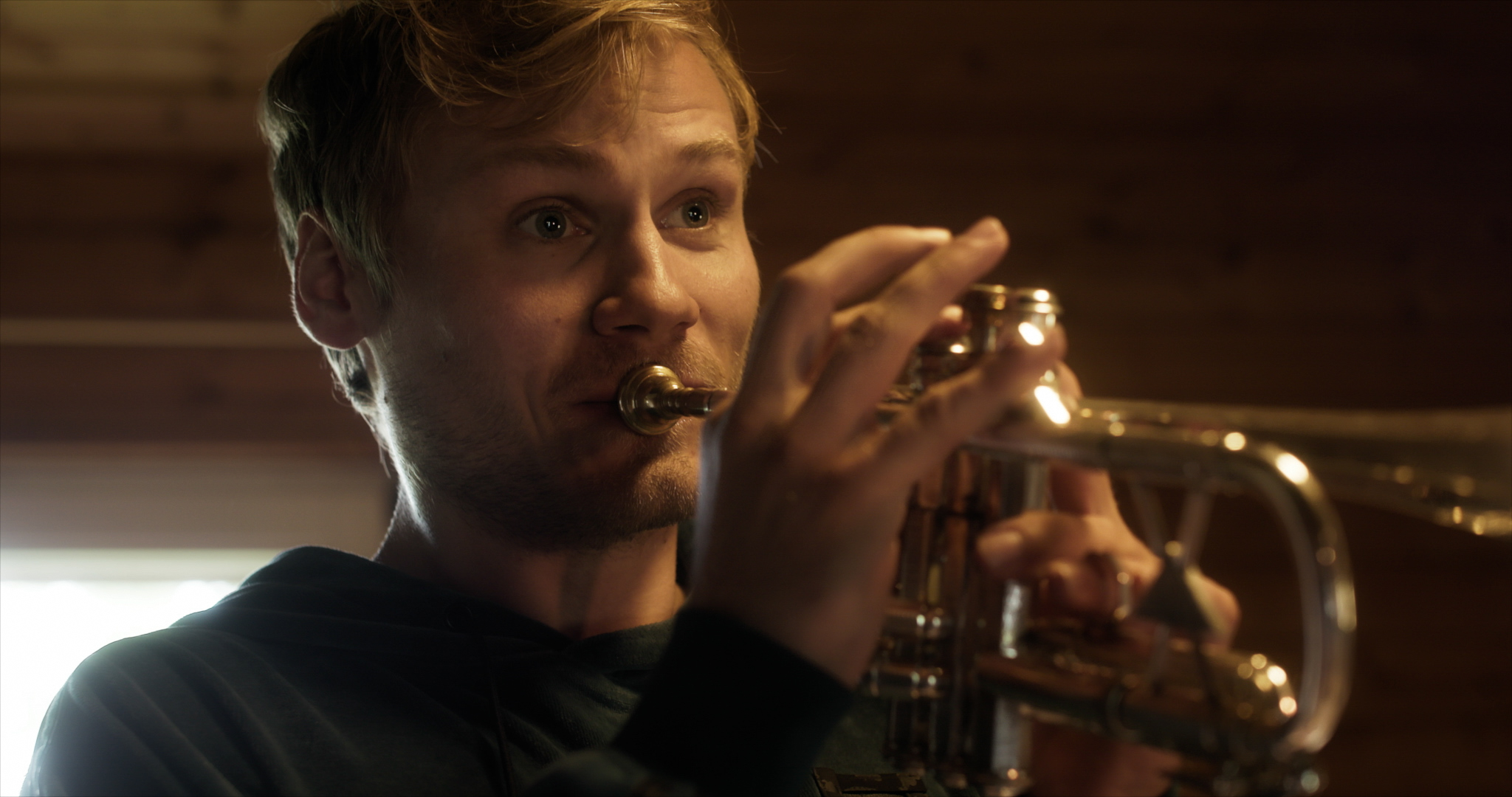 SCREEN-SPACE: Describe for us the very best day you had in the life cycle of your film…
SCREEN-SPACE: Describe for us the very best day you had in the life cycle of your film…
FRIEDRICH: It’s hard to say what my personal best day was. I had many moments while shooting the film that made me really happy, there were moments in the editing room or the mix when things started to work out that filled me with immense joy. But the very best day was probably our Premier at the Filmfestival Max Ophüls Preis in January 2020. We were sold out 3 times, the big cinema was stuffed until the last seat and it was the most amazing feeling to have this live audience in front of us showing them our film that was telling about forbidden live events. The atmosphere was overwhelming and it was such an incredible moment for us and the whole team to come together and celebrate our journey. Little we knew that only 7 weeks later we would in fact face closed theaters, cinemas, schools... (Pictured, above; Anton Spieker as Aurel, in LIVE)
SCREEN-SPACE: Having guided your film from idea to completion, what lessons and advice would you offer a young science-fiction filmmaker about to embark on a similar journey?
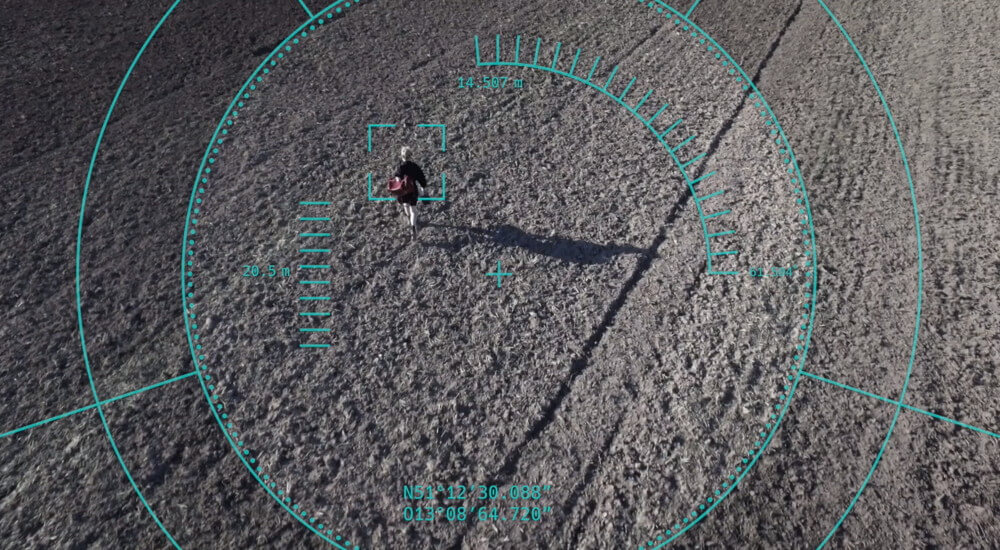 FRIEDRICH: A key thing for me to understand in shooting a sci-fi film with nearly no budget was to differentiate between two kinds of conflicts / discussions. When it was worth spending money or investing my team's energy to find a sci-fi-appropriate solution for whatever my problem was, and when, on the other hand, it was necessary to move on, not spend any time or money and let go. We all have heard it a thousand times, but restrictions in fact do help to shape your ideas. So, in my experience, it was very important to embrace the restrictions and at the same time to know what you want to tell. As long as you know this one hundred percent, you will always find a solution, even without money. (Pictured, above; a scene from LIVE)
FRIEDRICH: A key thing for me to understand in shooting a sci-fi film with nearly no budget was to differentiate between two kinds of conflicts / discussions. When it was worth spending money or investing my team's energy to find a sci-fi-appropriate solution for whatever my problem was, and when, on the other hand, it was necessary to move on, not spend any time or money and let go. We all have heard it a thousand times, but restrictions in fact do help to shape your ideas. So, in my experience, it was very important to embrace the restrictions and at the same time to know what you want to tell. As long as you know this one hundred percent, you will always find a solution, even without money. (Pictured, above; a scene from LIVE)
LIVE_MAKING_of from |li|ke| Filme on Vimeo.
